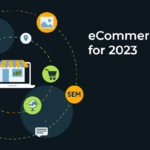The digital revolution has changed the game for businesses. By utilising digital tools and platforms, businesses can connect with their customers in unprecedented ways. For more personalised customer experiences, businesses can now access data, insights and analytics in real time.
With the right strategies, businesses can use the power of digital to revolutionise their operations, stay ahead of the competition, and grow their customer base.
The importance of customer connections in the digital age
In today’s digital world, it is no longer enough to simply have a website and a social media presence; businesses must also be leveraging the power of digital technology to stay ahead of the competition. Utilising digital tools and platforms can help businesses capture customer attention, increase engagement, and build relationships with consumers. It can also allow businesses to access valuable insights, understand customers better, and create personalised experiences.
Digital technology can also provide businesses with the opportunity to scale their operations and reach a wider audience. By utilising digital tools such as automation and AI, businesses can significantly reduce operational costs and increase efficiency. Digital marketing tactics can also be used to reach new markets and gain a competitive edge.
Understanding your customers
In the digital age, it is critical to understand your customers’ needs and preferences. This can be done by gathering data, insights, and analytics related to customer behaviour. By utilising customer data, businesses can create targeted campaigns that engage customers and drive conversions.
For example, businesses can use data and analytics to understand which types of content their customers prefer and create more effective marketing campaigns. Additionally, businesses can use data insights to understand customer preferences and create tailored experiences that make customers feel valued and appreciated.
Personalization
Personalization is a powerful tool that allows businesses to create deeper, more authentic connections with their customers, resulting in increased customer loyalty, engagement, and, ultimately, business success.
Personalization includes different strategies: customer data to create personalised recommendations or offers, to use content personalization, including using location data to offer personalised deals or promotions, creating custom landing pages for different customer segments, and using personalised messaging based on past interactions with the brand.
The key to effective personalization is to use customer data in an ethical, transparent, and privacy-conscious manner. Personalization, when used correctly, can be a powerful tool for creating stronger, more meaningful connections with customers, leading to increased engagement, loyalty, and business success.
Social Media
Social media is a powerful tool for connecting with customers in a meaningful way. Social media provides a platform for companies to share content, engage customers, and foster relationships. Businesses can use social media to provide customers with valuable content, participate in conversations, and build a loyal customer base.
For example, businesses can use social media to share updates, communicate with customers, and provide customer service. Businesses can also use social media to host contests, giveaways, and promotions. By engaging with customers on social media, businesses can create meaningful connections and foster loyalty.
OmniChannel Marketing
Omnichannel marketing has emerged as a powerful force in the modern business landscape. Unlike traditional marketing methods, which rely on a single channel to reach customers, omnichannel marketing takes a more comprehensive approach, engaging customers through a variety of touchpoints such as social media, email, mobile apps, and physical stores.
By creating a seamless customer experience across all these channels, businesses are able to build stronger relationships with customers and stay ahead of the competition.
To implement an effective omnichannel marketing strategy, businesses need to adopt a customer-centric approach. This involves zeroing in on the customer journey and creating a seamless experience that spans all touchpoints.
A few key strategies can help achieve this goal, such as creating consistent messaging across all channels, investing in technologies that integrate different channels, and using data analytics to track customer behaviour and preferences. By taking a strategic and proactive approach to omnichannel marketing, businesses can unlock the full potential of this powerful marketing approach and build a lasting competitive advantage.
Chatbots
Customer service is an essential element of any business, and digital tools and platforms can be used to enhance customer service. Digital tools can provide businesses with the opportunity to respond quickly to customer inquiries and provide timely assistance.
For example, businesses can use chatbots and automated customer service platforms to provide customers with 24/7 assistance. Additionally, businesses can use digital tools such as AI and natural language processing to provide personalised customer service. By utilising digital tools and platforms, businesses can provide customers with a better experience and increase customer satisfaction.
Customer Engagement
It is important to measure the success of your digital strategy and adjust accordingly. By tracking metrics such as website traffic and customer engagement, businesses can gain valuable insights into their digital performance.
For example, businesses can track the performance of their digital campaigns and adjust accordingly. Additionally, businesses can measure customer satisfaction and use data to provide better customer experiences. By measuring success and adjusting your strategy, businesses can maximise their digital efforts and increase conversions.
The role of AI in customer connections
The digital landscape is constantly evolving, and businesses must stay ahead of the competition by utilising emerging technologies. Emerging technologies such as AI, cloud computing, and blockchain can provide businesses with the opportunity to innovate and gain a competitive edge.
For example, businesses can use AI to automate tedious tasks, increase efficiency, and reduce operational costs. Additionally, businesses can use cloud computing to store and access data in real-time, as well as to provide scalable solutions. By adopting emerging technologies, businesses can innovate and stay ahead of the competition.
Finally….
By leveraging the power of digital, businesses can create unique customer experiences, increase engagement, and revolutionise their operations. By utilising digital tools and platforms, businesses can understand their customers better, capture customer attention, and provide personalised service.
Additionally, businesses can adopt emerging technologies and measure success in order to stay ahead of the competition. By embracing the power of digital, businesses can unlock new paths of growth and revolutionise their business. Check: jameshoggdisplay.digital








